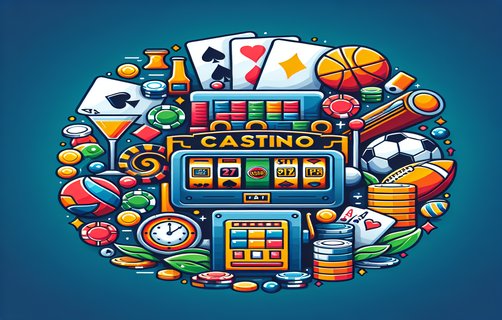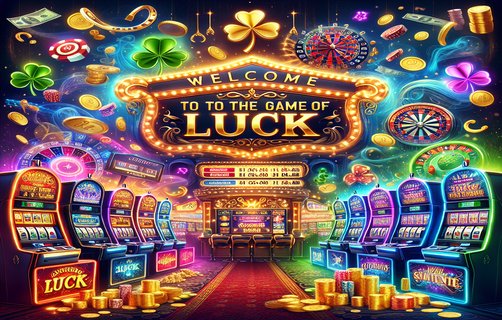The Intricacies of Online Gambling: A Pathfinder’s Journey Through the Casino Landscape
In the vast and exciting world of online gambling, the experience can often feel like an intricate game of strategy, chance, and psychological warfare. As a pathfinder weaving through this digital labyrinth, one can’t help but ponder the fascinating elements that shape modern casino play—from the allure of progressive jackpots to the nuances of responsible gambling. This journey begins not merely with a desire to win, but with an understanding of the deeper psychological aspects at play.

Playthrough requirements are often a complex web that players must untangle to maximize their potential rewards. These stipulations, designed by casinos to regulate bonuses, can create cognitive dissonance in players. On one hand, the promise of extra funds is enticing; on the other, the often-blurred lines of what constitutes a reasonable wager can lead to compulsive behaviors. Successful navigation of these rules requires a balance between ambition and self-control. Therefore, understanding the psychology behind these conditions becomes essential for any serious player.
As one delves deeper into gaming mechanics, the allure of progressive jackpots emerges as a significant motivator. The perception of a life-changing payout can trigger a primal response, often overriding rational thinking. Every spin of the slot machine becomes a gamble not just of money, but of hopes and dreams. As players engage with these options, understanding the underlying psychology can empower them to make wiser choices—recognizing when the thrill becomes an obsession is crucial for maintaining mental wellness.

Alongside these exhilarating prospects, the conversation around responsible gambling remains ever pressing. It’s essential to recognize the fine line between enjoyment and excessive play. Implementing strategies such as setting limits and understanding one's triggers can safeguard against the perils of addiction. The psychology of gambling reveals that many individuals chase losses, compounding their problems. Herein lies the necessity for players to harness self-awareness: understanding one's emotional state before and during play can mitigate the risk of crossing the threshold into harmful habits.
Moreover, the recent trends of online casino mergers have significantly transformed the casino landscape. These mergers create powerhouses that dominate the market. While the benefits may seem promising—like more resources devoted to technology and user experience—there is an underlying psychological impact on the players. As familiar brands blend into conglomerates, a sense of trust and loyalty may erode, leading players to question the integrity of these operations. The psychology of consumer behavior tells us that when players feel uncertain, they may withdraw or even act out in frustration, which can influence their overall gambling habits.
In addition, the rise of casino apps has reshaped the gambling experience. The convenience of playing from one’s mobile device introduces a psychological phenomenon known as the “near-miss effect,” where players are drawn to apps that mimic traditional betting, amplifying their engagement. This accessibility can encourage spontaneous gambling behaviors, making it essential for players to establish boundaries. Recognizing the psychological triggers that lead to impulsive play within app environments can be a powerful tool in maintaining responsible gambling practices.
As we explore tactics like turn and river betting in poker, different strategies emerge that hinge on psychological principles. Understanding opponents' behaviors during these critical betting rounds can provide a significant edge. The ability to read emotions and detect bluffing often hinges on emotional intelligence and psychological acuity, making these skills invaluable for serious players looking to succeed at the tables.
Moreover, the occasional act of stealing blinds unleashes another layer of psychological strategy. It plays into the players' perception of risk and reward, as well as their willingness to challenge norms. Successfully bluffing an opponent relies heavily on their psychological state—confidence can wane, and the thrill of confrontation contributes to the ebb and flow of the game, providing moments of tension that can be both exhilarating and intimidating.
In conclusion, as we traverse the multifaceted avenues of online gambling, it becomes apparent that the intertwining of psychological awareness with strategic play can enhance the experience immensely. Whether engaging with progressive jackpots, navigating through casino apps, or honing betting tactics in poker, understanding the mental aspects of gambling is not merely beneficial—it’s essential. As responsible enthusiasts, embracing this journey with a mindful approach leads to not only greater enjoyment but also a healthier, more rewarding gambling experience.
